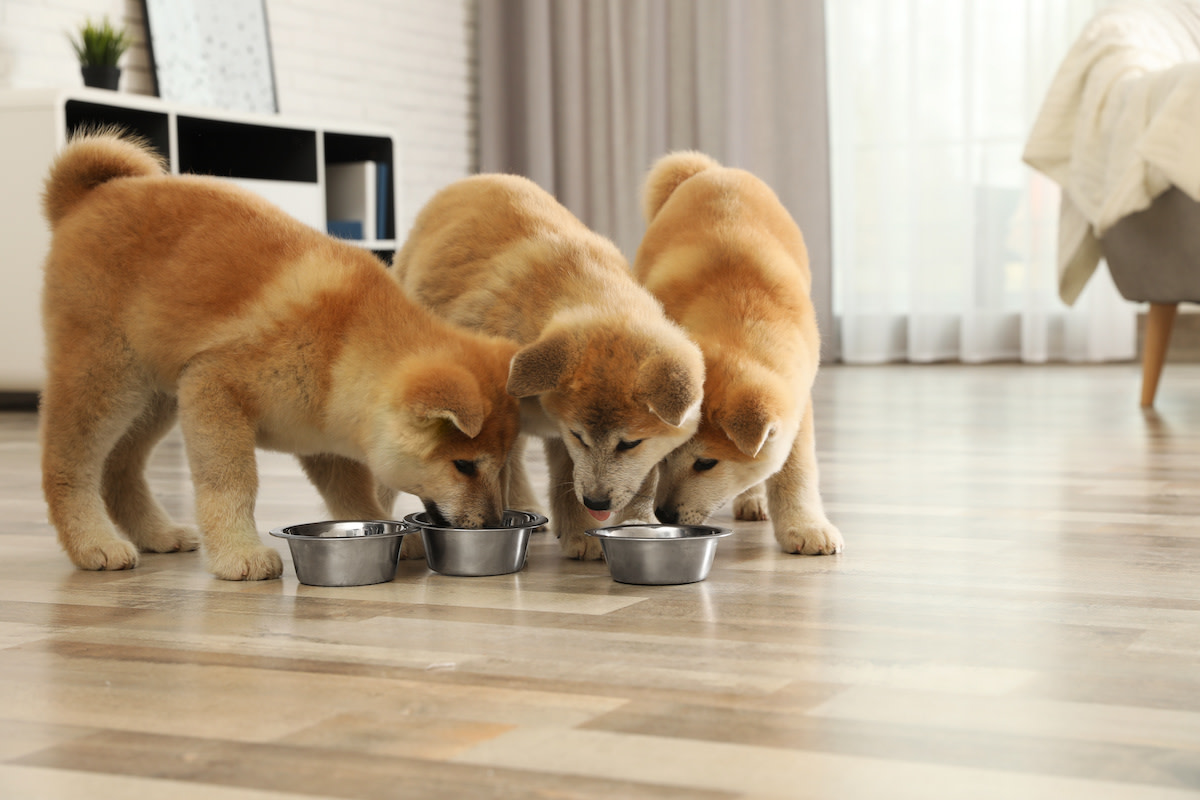Can Dogs Eat Rice Cakes? How to Feed Rice Cakes to Dogs
Written by MasterClass
Last updated: May 11, 2022 • 4 min read
Pet owners wondering if dogs can eat rice cakes will be happy to know that this food is safe for canines to consume. Puffed rice can be a safe source of carbohydrates for canines, provided it doesn’t make up the bulk of their diet.
Learn From the Best
Can Dogs Eat Rice Cakes?
It is safe for dogs to eat plain puffed rice cakes as an occasional low-calorie snack. To use rice cakes as dog treats, look for plain rice cakes with no added salt, spices, or artificial flavors. Before sharing rice cakes with your furry friend, read the ingredients label—many flavorings or additives in human foods can be unsafe for canines. For example, chewy steamed rice cakes—made from rice flour—are not safe for dogs since they can pose a choking hazard.
Only supplement a dog’s diet with small amounts of rice cakes because any human food can upset a dog’s vulnerable stomach. Always consult with a veterinarian before incorporating non-dog food into a canine’s regular diet. It’s important to note that ninety percent of a dog’s calories should come from dedicated dog food, with the remaining ten percent from occasional human foods.
Are Rice Cakes Good for Dogs?
Determining whether or not rice cakes are good for dogs depends on a few factors. Brown rice cakes use the whole grain, including the entire bran, so they contain more vitamins and minerals than those made with white rice. However, brown rice is more difficult for a dog to digest.
Small amounts of rice can carry some nutritional value for dogs, as it contains vitamins B and D, riboflavin, calcium, and iron. Rice cakes are also a good source of fiber, which can improve a dog’s digestion and help clear their gastrointestinal tract. However, consuming rice cakes in excess can impact your dog’s health and potentially cause an upset stomach or diarrhea.
Beyond its trace minerals and vitamins, rice cakes are not especially nutritious for dogs. Additionally, white rice has a high glycemic index, which can cause a dog’s blood sugar levels to spike, causing a glucose imbalance and potential weight gain. Avoid feeding refined white rice cakes to canines that are diabetic or insulin-resistant.
5 Common Rice Cake Ingredients to Avoid
If you decide to feed your dog rice cakes, opt for the plain type without harmful additives. Here are some rice cake ingredients to avoid:
- 1. Additives: Toxic ingredients for dogs can show up in some flavorings for rice cakes. Do not feed a dog rice cakes that contain chocolate, garlic, onion powder, or xylitol.
- 2. Gluten: If your dog has a gluten allergy, avoid giving them rice cakes, especially any made with glutinous rice, such as mochi.
- 3. Milk: Rice crackers frequently count milk as an ingredient, which can cause an upset stomach in lactose-intolerant dogs.
- 4. Salt: Many commercial rice cakes contain added sodium, which can upset your dog’s delicate stomach.
- 5. Sugar: Sweet rice cakes—like caramel rice cakes or apple cinnamon rice cakes—have a high sugar content, which can lead to canine health issues or allergic reactions.
How to Feed Rice Cakes to Dogs
Follow this step-by-step guide to feeding your dog rice cakes:
- 1. Speak to a vet. Always consult with a veterinarian before regularly incorporating human food into a dog’s diet. Since rice is a starchy carb, it can cause a spike in your dog’s blood sugar levels. Especially if your dog is diabetic or at risk of developing diabetes, speak with your veterinarian before incorporating rice cakes into their diet. They may recommend against it.
- 2. Choose the right rice cakes. When shopping for your dog’s new treat, stick to classic low-sodium plain white rice cakes. (Brown rice will be more difficult for them to digest.) Read the package ingredients to ensure they don’t contain harmful ingredients like seasonings or xylitol.
- 3. Break off a small piece. Break your rice cake into small pieces that will be easy for your dog to chew and swallow. Depending on your dog’s size, a quarter-inch to a half-inch piece should be safe for them to consume.
- 4. Monitor for side effects. When feeding your furry friend a new treat, keep a close eye on them afterward to monitor for signs of an adverse reaction. If your dog experiences stomach discomfort, itchiness, or hair loss, they may be allergic to rice cakes. Call your veterinarian immediately if your dog displays any adverse side effects after eating rice cakes.
Before Sharing With Your Pooch
Certain human foods can cause adverse reactions in canines, so always consult your veterinarian to determine whether it is safe to add these foods to your pet’s diet. This article is for educational and informational purposes and is not a substitute for medical or dietary advice.
Want to Learn More About Training the Goodest Boy or Girl?
Your dream of having a dog who understands words like “sit,” “stay,” “down,” and—crucially— “no” is just a MasterClass Annual Membership away. The only things you’ll need to train up a well-behaved pup are your laptop, a big bag of treats, and our exclusive instructional videos from superstar animal trainer Brandon McMillan.
